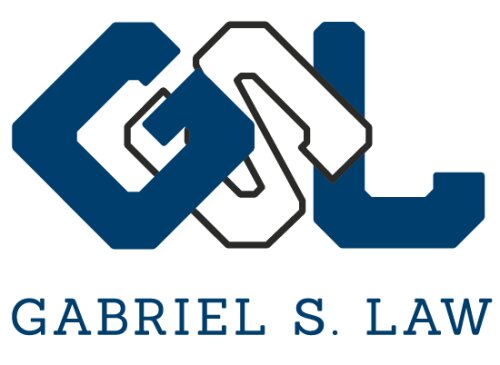Best Debt & Collection Lawyers in United States
Share your needs with us, get contacted by law firms.
Free. Takes 2 min.
Or refine your search by selecting a city:
List of the best lawyers in United States
About Debt & Collection Law in United States
Debt & Collection law in the United States governs the ways in which creditors can collect debts from individuals or businesses. This area of law is designed to protect consumers from unfair practices while allowing creditors to pursue fair and reasonable collection efforts. The Fair Debt Collection Practices Act (FDCPA) is a key federal law that outlines what is considered appropriate conduct for debt collectors, setting boundaries against harassment, misrepresentation, and other abusive practices. Additionally, state laws may provide further consumer protections specific to their jurisdiction.
Why You May Need a Lawyer
There are numerous situations where seeking legal assistance in the context of debt and collection can be beneficial:
- Harassment by debt collectors: If you're facing harassment or abusive behavior from debt collectors, a lawyer can help enforce your rights under the FDCPA.
- Identity theft or fraud: If you've been a victim of identity theft leading to dubious debts, a lawyer can assist in clearing your credit history and defending against wrongful claims.
- Debt disputes: If you believe a debt is incorrect or have been wrongly charged, legal assistance can help negotiate and dispute these claims.
- Negotiating settlements: Lawyers can help negotiate debt settlements that are more favorable and manageable.
- Bankruptcy considerations: If you are overwhelmed with debt, a lawyer can guide you through bankruptcy options, ensuring you're aware of potential consequences and benefits.
Local Laws Overview
Each state in the U.S. can adapt and enforce its own consumer protection laws, which may vary widely. While the FDCPA provides broad protections, state laws often offer additional safeguards:
- Statute of limitations: Varies by state, referring to the time frame within which a collector can legally sue for a debt.
- Wage garnishment limits: Different states have different rules regarding how much of your income can be garnished for debt repayment.
- Exemptions: States may have specific exemptions protecting certain types of income and assets from debt collection.
- Licensing requirements: Many states require debt collectors to be licensed to operate legally within their borders.
Frequently Asked Questions
What is a debt collector allowed to do under the FDCPA?
Under the FDCPA, debt collectors can contact you for information and attempts to collect repayment. However, they are prohibited from harassment, false representation, and cannot call at inconvenient times or places.
Can I be arrested for not paying my debts?
No, you cannot be arrested for non-payment of debts like credit cards or medical bills. However, you can face a civil lawsuit which may result in a court order to fulfill the debt obligations.
What should I do if I receive a lawsuit for a debt?
Promptly consult a lawyer to review the lawsuit and provide guidance on how to respond. Ignoring a lawsuit can lead to a default judgment against you.
How can I stop a debt collector from contacting me?
You can send a written request to the debt collector to cease contact. Once received, they can communicate only to inform you of specific actions being taken, like a lawsuit.
Can I negotiate a lower payoff amount with creditors?
Yes, often creditors are open to negotiation, especially if you're unable to pay the full amount. A lawyer or professional negotiator can assist in reaching a fairer settlement.
What is a debt validation letter?
A debt validation letter is a request from you to the debt collector to provide proof that you owe the debt. This is a right under the FDCPA to ensure the validity of the debt.
What are my rights if a collector violates the FDCPA?
You can report violations to the Federal Trade Commission (FTC) and the Consumer Financial Protection Bureau (CFPB), and potentially sue the collector within one year for damages.
How does bankruptcy affect my debts?
Bankruptcy can discharge many types of debt, but it’s a complex process with long-term financial implications. Consulting with a bankruptcy attorney is advisable to understand your situation.
Will paying off a debt improve my credit score?
Paying off a debt may improve your credit score, but the timing and impact vary. The mark that the debt was previously delinquent may remain on your report for some time.
What types of income are protected from debt collectors?
Certain incomes, such as Social Security benefits, disability, and unemployment insurance, are typically exempt from debt collection, although this can vary by state.
Additional Resources
Consider the following resources for further assistance:
- Consumer Financial Protection Bureau (CFPB) - Provides detailed guides and resources on managing debt and understanding your rights.
- Federal Trade Commission (FTC) - Offers consumer protection information and channels to report violations.
- National Foundation for Credit Counseling (NFCC) - Provides access to certified credit counselors.
- American Bar Association (ABA) - Offers guidance on finding a local lawyer specialized in debt and collection.
Next Steps
If you find yourself needing legal assistance in debt and collection matters, the following steps are recommended:
- Gather Documentation: Collect any relevant documents, including communication with debt collectors, collection notices, and your financial records.
- Research Your Rights: Familiarize yourself with your rights under the FDCPA and relevant state laws.
- Consult a Professional: Contact a lawyer with expertise in debt collection issues to receive tailored legal advice and potential action plans.
- Seek Financial Counseling: Consider consulting a financial advisor or counselor who can offer guidance on managing debts effectively.
Lawzana helps you find the best lawyers and law firms in United States through a curated and pre-screened list of qualified legal professionals. Our platform offers rankings and detailed profiles of attorneys and law firms, allowing you to compare based on practice areas, including Debt & Collection, experience, and client feedback.
Each profile includes a description of the firm's areas of practice, client reviews, team members and partners, year of establishment, spoken languages, office locations, contact information, social media presence, and any published articles or resources. Most firms on our platform speak English and are experienced in both local and international legal matters.
Get a quote from top-rated law firms in United States — quickly, securely, and without unnecessary hassle.
Disclaimer:
The information provided on this page is for general informational purposes only and does not constitute legal advice. While we strive to ensure the accuracy and relevance of the content, legal information may change over time, and interpretations of the law can vary. You should always consult with a qualified legal professional for advice specific to your situation.
We disclaim all liability for actions taken or not taken based on the content of this page. If you believe any information is incorrect or outdated, please contact us, and we will review and update it where appropriate.
Browse debt & collection law firms by state in United States
Refine your search by selecting a state.

















